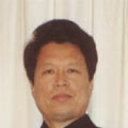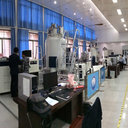Efficacy of EGFR tyrosine kinase inhibitors for non-adenocarcinoma lung cancer patients harboring EGFR-sensitizing mutations in China.
Ključne riječi
Sažetak
OBJECTIVE
EGFR tyrosine kinase inhibitors (TKIs) have been established as standard therapy for EGFR-mutated adenocarcinomas; for non-adenocarcinoma non-small cell lung cancer (NSCLC) patients, this therapy remains debatable.
METHODS
Stage IIIB/IV patients with non-adenocarcinoma NSCLC who underwent EGFR testing were identified at the Shanghai Chest Hospital from January 2009 to September 2014.
RESULTS
A total of 51 patients with EGFR-sensitizing mutations [26 patients with squamous cell carcinoma (SCC), 15 patients with adenosquamous cell carcinoma (ASC), and 10 patients with large cell lung carcinoma (LCLC)] were available for analysis of EGFR TKI treatment efficacy. The progression-free survival (PFS) for the 51 patients harboring EGFR-sensitizing mutations was 4.93 months (95 % CI 3.93-5.93). The PFS for the SCC, ASC, and LCLC patients was 3.98 months (95 % CI 3.32-4.63), 8.08 months (95 % CI 4.17-12.00), and 4.40 months (95 % CI 1.56-7.24), respectively. Among the 51 non-adenocarcinoma NSCLC patients, the PFS of the non-smokers and smokers was 5.49 months (95 % CI 3.28-7.70) and 3.78 months (95 % CI 2.61-4.95), respectively (P = 0.036). The PFS for the patients with a deletion in exon 19 and for those with an exon 21 L858R mutation was 5.16 months (95 % CI 4.21-6.11) and 4.04 months (95 % CI 2.35-5.73), respectively (P = 0.414).
CONCLUSIONS
EGFR TKIs could be an option for the treatment of EGFR-mutated non-adenocarcinoma NSCLC, especially for patients with adenosquamous histology and non-smokers.




